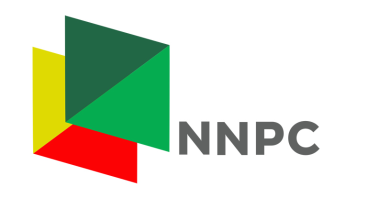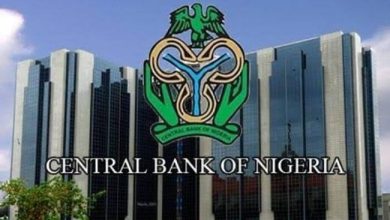POS Transactions Hit N223tn in 2024 as Nigerians Embrace Cashless Payments
POS transactions in Nigeria doubled to ₦223.27tn in 2024, signaling digital payment dominance.
ATM usage stagnated as fraud, cash shortages, and fee hikes triggered CBN enforcement actions.
Point-of-Sale (POS) terminals processed transactions worth N223.27 trillion in 2024, more than double the N110.35 trillion recorded in 2023, according to the Central Bank of Nigeria’s (CBN) latest quarterly statistical bulletin.
This surge highlights a growing shift among Nigerians from Automated Teller Machines (ATMs) to POS services for financial transactions. The number of POS transactions jumped from 9.85 billion in 2023 to 13.08 billion in 2024 a 32.7 percent increase year-on-year. Meanwhile, ATM usage remained nearly stagnant, with transaction volumes rising only slightly from 1.012 billion to 1.022 billion.
The value of ATM withdrawals in 2024 stood at N29.12 trillion, up marginally from N28.21 trillion the previous year. This trend reflects the increasing preference for digital payments and the reduced dependence on physical cash.
Monthly figures provided by the apex bank show a steady rise in POS transaction value throughout the year. In January 2024, for instance, POS terminals handled N11.50 trillion in payments more than twice the N5.28 trillion recorded in the same month of 2023. In contrast, ATM withdrawals dropped from N3.24 trillion in January 2023 to N2.15 trillion in January 2024.
In February, POS transactions hit N12.46 trillion, a significant jump from N7.38 trillion recorded the year before. ATM withdrawals continued to decline, falling to N1.72 trillion from N1.77 trillion. By March, POS value rose to N14.73 trillion from N10.62 trillion a year earlier, while ATM withdrawals dropped further to N1.60 trillion from N2.16 trillion.
April saw POS transactions reach N13.74 trillion compared to N8.55 trillion in April 2023. ATM withdrawals fell to N1.81 trillion, down from N2.41 trillion. The upward trend continued in May, with POS transaction value climbing to N13.91 trillion a 67.3 percent increase from N8.30 trillion in May 2023. ATM usage slipped again, recording N2.49 trillion compared to N2.62 trillion the previous year.
June witnessed one of the most dramatic jumps, with POS terminals processing N19.57 trillion in transactions, more than doubling the N8.31 trillion recorded in June 2023. While the value of ATM withdrawals held steady at N2.45 trillion, usage volume rose to 113.17 million transactions, indicating more frequent but smaller withdrawals.
In July, ATM withdrawals increased to N3.21 trillion from N2.24 trillion, while POS transactions reached N15.24 trillion, representing an 83 percent rise year-on-year. August followed with POS transaction value at N18.90 trillion, up from N9.10 trillion in 2023. ATM usage also climbed slightly to N2.21 trillion from N2.14 trillion.
September maintained the upward momentum with POS payments totaling N19.69 trillion, showing a 109.6 percent increase from N9.40 trillion the previous year. ATM value grew modestly to N2.30 trillion from N1.99 trillion. In October, POS transactions hit N22.27 trillion, nearly doubling the N10.60 trillion recorded in the same month of 2023, while ATM withdrawals dropped to N1.93 trillion the year’s lowest from N2.54 trillion.
November set a new record, as POS transaction value skyrocketed to N29.42 trillion, more than 160 percent higher than N11.28 trillion in November 2023. ATM withdrawals for the month reached their peak at N3.35 trillion. The year ended with POS usage peaking at N31.84 trillion in December, compared to N13.20 trillion a year earlier. ATM withdrawals also hit a yearly high of N3.91 trillion, up from N2.43 trillion.
The data clearly indicates a nationwide shift toward digital payment solutions, especially through POS terminals, which have become more accessible across urban and rural areas thanks to agent banking. While ATM services remain relevant, their usage is increasingly limited to specific needs.
However, the rapid growth of POS payments has also brought challenges. December 2024 witnessed an arbitrary hike in POS transaction fees, with agents charging up to N200 for N5,000 withdrawals a 100 percent increase. This came as banks’ ATMs ran out of cash, forcing customers to rely on POS agents who capitalized on the demand.
Despite a stern warning from the CBN to banks about keeping ATMs stocked with cash, many failed to comply. In response, the CBN fined nine commercial banks a total of N1.35 billion (N150 million each). The penalized banks included Fidelity Bank, First Bank, Keystone Bank, Union Bank, Globus Bank, Providus Bank, Zenith Bank, UBA, and Sterling Bank. The fines were debited directly from their CBN accounts.
POS operators defended the fee hikes, citing cash scarcity and the enforcement of the Electronic Money Transfer Levy (EMTL) of N50 on inflows of N10,000 and above, which was applied more strictly from December 1, 2024. The EMTL, also known as stamp duty, is a one-time charge on electronic deposits into bank accounts. The Federal Government extended its enforcement of this levy to fintech platforms like OPay, Moniepoint, and Kuda, which now control roughly 70 percent of POS agency banking in Nigeria.
The POS boom has also led to a surge in fraud cases. According to the FITC’s “Fraud and Forgeries Report” for Q1 2024, POS-related fraud rose by 31.12 percent, with 3,518 reported cases, up from 2,683 in Q4 2023. These incidents made up over 30 percent of total fraud cases in the period.
In response to these risks, the CBN introduced a daily cash-out limit of N100,000 per customer through POS agents and a cumulative daily limit of N1.2 million per agent. Weekly customer withdrawals are now capped at N500,000.
The CBN also mandated that all POS transactions be conducted through float accounts linked to principal institutions. Additionally, agents’ terminals must be connected to the Payment Terminal Service Aggregator (PTSA), and transaction reports must be submitted electronically to the Nigerian Inter-Bank Settlement System (NIBSS).
The apex bank warned that principal institutions would be held accountable for their agents’ misconduct and outlined penalties for breaches, including monetary fines and administrative sanctions. Regular audits and backend checks will be conducted to ensure compliance.
While POS terminals have transformed payment systems in Nigeria by offering speed, convenience, and access, the CBN’s challenge lies in managing this growth responsibly to curb fraud, excessive fees, and non-compliance by financial institutions.



